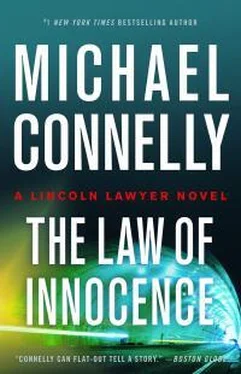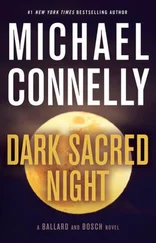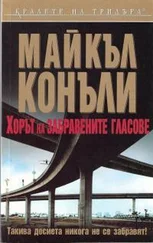I paused for a moment and looked down at the notes I had scribbled on my legal pad. I didn’t need them. I was on a roll. But I wanted the space so the judge could take in my argument in pieces.
“Since day one I have demanded my right to a speedy trial,” I continued. “I have said put up or shut up to the state. I did not commit this crime and I demand my day in court. And as that day has drawn closer and the prosecution knows it’s almost time, they have blinked. They know their case is weak. They know it is full of holes. They know I have innocence and reasonable doubt on my side and they have attempted to thwart my defense at every turn.”
I paused again, this time turning slightly to look back at my daughter and offer a wistful smile. No man should have his daughter see him in this position.
I turned back.
“Judge, every lawyer’s got a bag of tricks—prosecutor, defense attorney, doesn’t matter. There is nothing pure about the law when you get inside a courtroom. It’s a bare-knuckle fight and each side uses whatever it can to bludgeon the other. The constitution guarantees me a speedy trial, but by dropping the original charge and talking a grand jury into a new one, the prosecution is trying to bludgeon me in two ways: stick me in a jail cell so I am handicapped in preparing my defense, and restart the game clock so the state has more time to wield its power and might and shore up their losing case against me.”
This time I kept my eyes on the judge as I paused before the windup.
“Is it legal? Is it within code? Perhaps. I’ll give them that. But is it fair? Is it in the pursuit of justice? Not a chance. You can stick me back in jail, you can delay the search for truth that a trial is supposed to be, but it won’t be the right thing to do and it won’t be fair. The court holds a lot of discretion in this regard and the defense urges you not to restart the clock. Let’s get to the search for the truth now instead of later, instead of at the prosecution’s convenience. Thank you, Your Honor.”
If my words had any impact on Warfield, she didn’t show it. She didn’t write anything down as she had during the earlier motion. She simply swiveled six inches in her high-backed, leather chair so that her gaze shifted from me to the prosecution table.
“Ms. Berg?” she said. “Would the state like to respond?”
“Yes, Your Honor,” Berg said. “I promise to be more succinct than the defense. In fact, Mr. Haller made my argument for me. What we have done with the refiling of the case through grand jury indictment is firmly within the bounds of the law as well as something that happens routinely in this courthouse and courthouses across the country. It is not a do-over or a delay tactic. I am charged with seeking true justice for the victim of this cold-blooded murder. Through the grand jury and the presentation of evidence from the ongoing investigation, we have elected to upgrade the charges in the pursuit of justice.”
In my peripheral vision I saw Berg glance my way as she threw my own words back at me. I did not give her the satisfaction of a look back.
“Your Honor, the case against the defendant is strong and getting stronger as the investigation of this crime continues. That’s what the defendant knows, that is what he is trying to subvert: a search for truth with all the evidence on the table. It is his hope that by hurrying into trial, he can stop the mounting evidence from crushing him. That won’t happen, because the truth is inevitable. Thank you.”
The judge paused before speaking, possibly waiting to see whether I would stand to object or respond to Berg. She even swiveled her chair back toward me as if expecting it. But I held my ground. I had made my points and there was no need to restate them.
“This is a novel situation,” Warfield began. “It has been my experience as a judge—and as a defense attorney in a prior life—that it is the defendant who most often seeks delays, seemingly in an effort to put off the inevitable. But not in this case. And so the arguments today give me pause. Mr. Haller clearly wants this behind him—no matter the outcome. He also wants to be free to build his case.”
The judge swiveled toward Berg.
“On the other hand, the state gets only one shot at this,” she said. “There are no do-overs and therefore time to prepare is key. There are new charges in the case and the state bears the responsibility of being able to support those charges to a level far above the probable-cause threshold found by the grand jury. The burden of proof—proving guilt beyond a reasonable doubt—is just as heavy as the burden carried by the defense.”
The judge straightened her seat and leaned forward, clasping her hands together.
“The court is inclined in these matters to split the baby. And I will let the defense choose how that split is made. Mr. Haller, you decide. I will continue your bail with all the existing restrictions but you will waive your right to a speedy trial. Or I will revoke bail but refuse to change the case calendar, leaving the start of trial on this matter set for the eighteenth of February. How do you wish to proceed?”
Before I could stand and respond, Berg did.
“Your Honor,” she said urgently. “May I be heard?”
“No, Ms. Berg,” the judge said. “The court has heard all it needs to hear. Mr. Haller, will you make a choice, or would you like me to allow Ms. Berg to choose?”
I stood slowly.
“A moment, Your Honor?” I asked.
“Make it fast, Mr. Haller,” Warfield said. “I am in an uncomfortable position that I will not hold for long.”
I turned toward the railing behind the defense table and looked at my daughter. I signaled her closer and she slid forward on her seat, putting her hands on top of the rail. I leaned down and put my hands on top of hers.
“Hayley, I want this over with,” I whispered. “I didn’t do this and I think I can prove it. I want to go in February. You going to be okay with that?”
“Dad, it was so hard when they had you in jail before,” she whispered back. “Are you sure?”
“It’s like what you and your mother and I talked about. I’m free right now, but inside I feel like I’m still locked up as long as this is hanging over me. I need it to be over.”
“I know. But I worry.”
From behind me I heard the judge.
“Mr. Haller,” she said. “We are waiting.”
I kept my eyes on my daughter.
“It’s going to be all right,” I said.
I quickly leaned over the rail and kissed her on the forehead. I then glanced at Kendall and nodded. I could tell by the look of surprise on her face that she expected more, she expected to be consulted. That I had sought my daughter’s approval on this choice rather than hers might doom our relationship. But I did what I felt I had to do.
I turned back to the judge and announced my decision.
“Your Honor, I surrender myself to the court at this time,” I said. “And I will be ready to defend myself on the charges on February eighteenth as scheduled. I am innocent, Judge, and the faster I can get to a jury to prove it, the better.”
The judge nodded, seemingly not surprised but concerned by my decision.
“Very well, Mr. Haller,” she said.
She made it official with rulings from the bench, but not without a final objection from the prosecution.
“Your Honor,” Berg said. “The People ask that your ruling on the trial date be stayed while under review by the Second District Court of Appeal.”
Warfield looked at her for a long moment before replying. It is always a risky move to tell a judge you are appealing a ruling from the bench when you still have a whole trial before the same judge ahead of you. Judges are supposed to be impartial, but when you announce you are going to a higher court to complain that your lower court judge was in error, well, there are ways for that jurist to even the score down the line. A perfect example is what Judge Hagan did to me at my first appearance on this case. I had reversed him twice on appeal. He paid me back by slapping me with a $5 million bail. He all but winked and smiled at me when he did it. Berg was walking a similar line with Warfield now, and it looked like the judge was giving her a few seconds to reconsider.
Читать дальше







![Майкл Коннелли - Christmas Even [Short story]](/books/390532/majkl-konnelli-christmas-even-short-story-thumb.webp)



